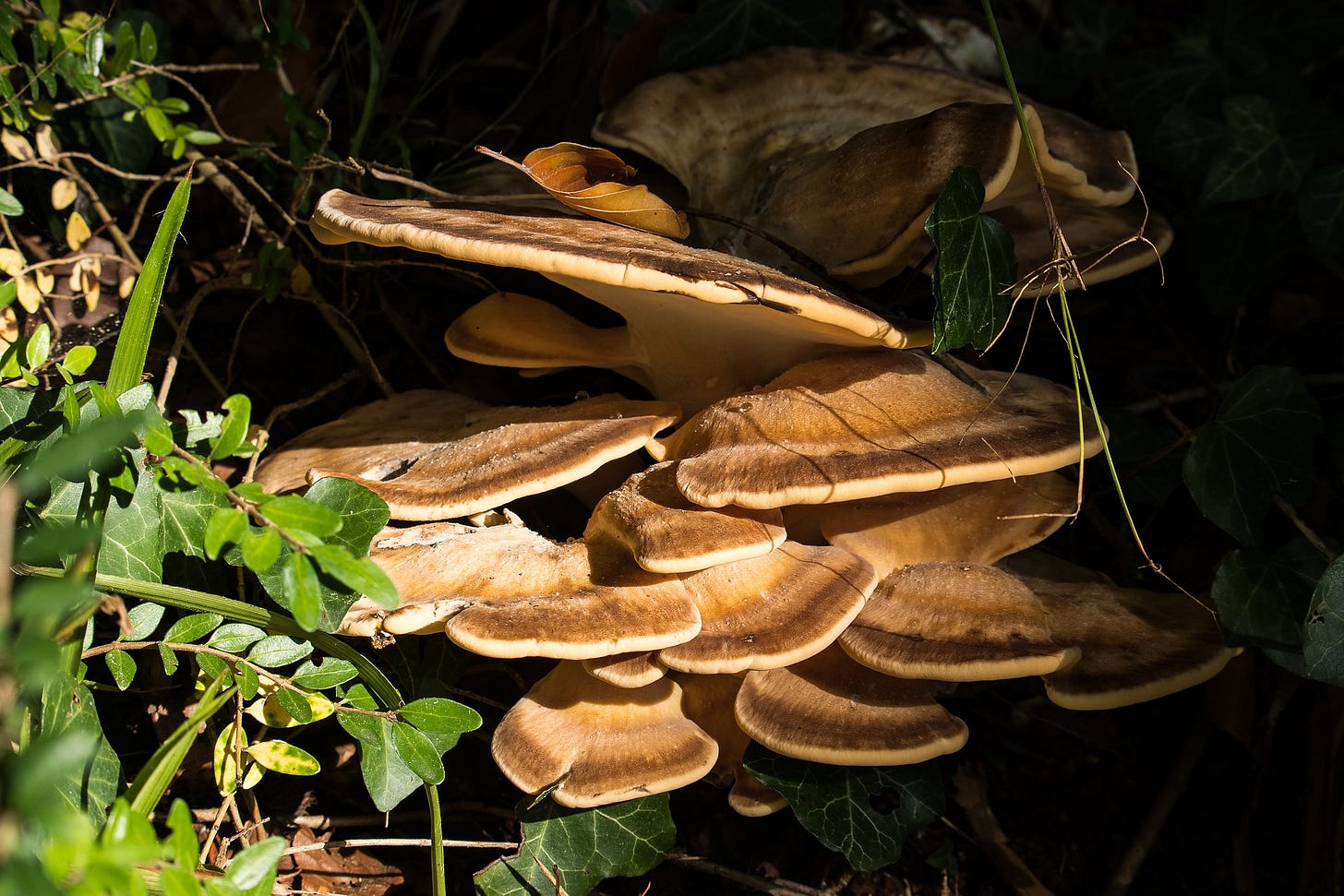I’m three weeks into the Master of Public Health graduate program at Boise State University, with my area of emphasis in “Prevention and Intervention Programming”. I was intrigued by this emphasis for its focus on community building and citizen engagement, and each time I attend class any anxieties of being in the wrong place wash away.
For years, I’ve been interested in helping friendships and family relationships flourish past the point of banter and superficial conversations--actually learning about the inner thoughts/beliefs/interests/goals/worries/fears of the people we call our loved ones--but also how to create networks of people (a community) who may not all have the exact same beliefs, but can come together to achieve a shared goal.
When I think of a successful community, the world of mycelium and fungi immediately comes to mind. This weekend I watched Fantastic Fungi, a beautiful film of time-lapse cinematography of mushroom growth, as well as conversation around the groundbreaking research and application of the medicinal and ecological uses of various mushrooms.
Of the many medicinal uses of mushrooms, which I can’t list exhaustively, my favorite is supplementing with Lion’s Mane mushroom. The polysaccharides in Lion’s mane, and many other edible and non-psychoactive mushrooms (turkey tail, reishi, cordyceps, chaga, maitake), have shown to promote neuronal health and immune boosting benefits.

A primary interest of mine in the field of public health is dementia and Alzheimer’s disease prevention, for which I believe Lion’s Mane supplementation can play a vital role in delaying or avoiding the onset of neurodegeneration. While it’s anecdotal evidence, some benefits I’ve noticed over the years are better memory recall, acute hearing, and improved balance and proprioception.
(Lion’s Mane is admittedly not cheap, but I buy the bulk powder from Groves Country Mushroom Farm, a local mushroom farm in Parma, Idaho. I put the powder in capsules myself and would be happy to share a free sample with anyone interested!)
One idea central to public health intervention is the “Health Impact Pyramid”. The question is: How do we design health interventions that reach the most people possible, while keeping the effort required by the individual reasonably low?
The recent research in the realm of psychedelic-assisted psychotherapy is extremely optimistic, particularly due to the significant and life-changing results--even cessation from smoking--observed in as few as one or two sessions. Current pharmaceutical approaches to depression and anxiety require patients to take SSRI’s indefinitely, often with detrimental side effects. The research into psychedelics for mental illnesses is young, but its extreme promise demands that we seriously look toward these natural compounds as potential psychiatric tools of the future. I highly encourage you to watch Fantastic Fungi to learn more and hear testimonials from the researchers actually performing the experiments.
On the ecological side of things, Paul Stamets has a TED Talk called “6 ways mushrooms can save the world”, from cleaning up oil spills, to mycelium-based insecticides, to protection from viral infection (that could be helpful right about now), and all the way to saving the bees. Fungi are among the oldest organisms on the planet, and it only makes sense that we look to their wisdom for solutions to today’s biggest problems.
“A core concept of evolution is that through natural selection, the strongest and the fittest survive. But moreoever, communities survive better than individuals. Communities rely upon cooperation, and I think that’s the power of goodness. Evolution is based on the concept of mutual benefit, and the extension of generosity.” -Paul Stamets, Fantastic Fungi
Thanks for reading :)
-Kyle




